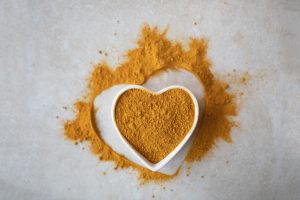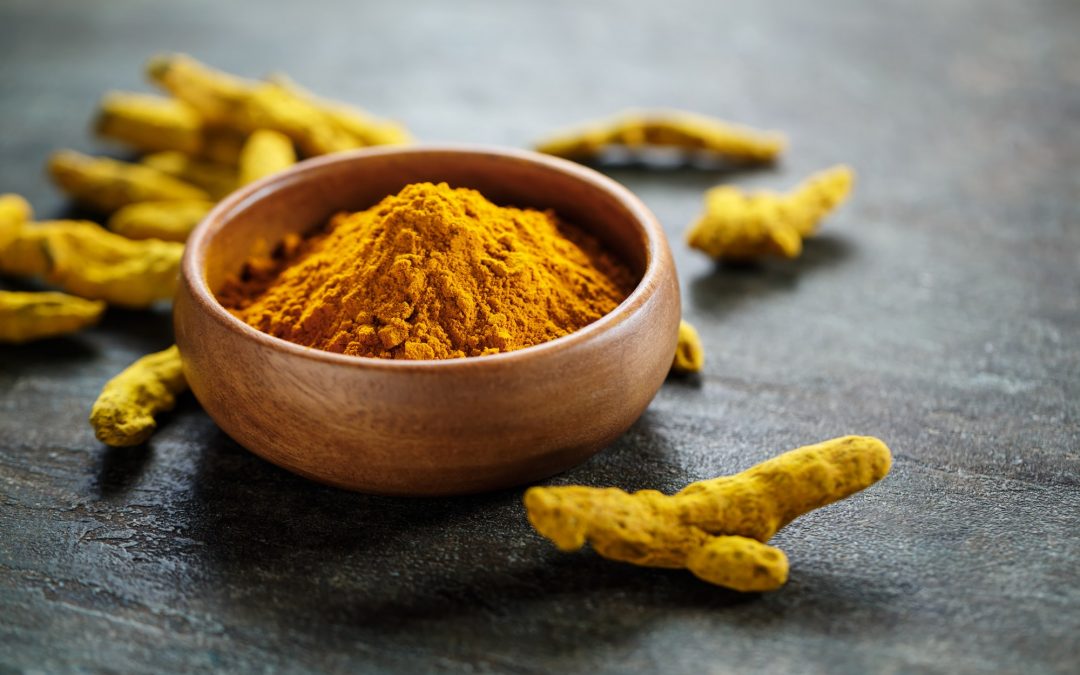Discover the benefits of one of nature’s most remarkable natural remedies.
What are the health benefits of turmeric?
Turmeric, identified by its deep golden color, is a spice grown in Southeast Asia that has been part of Chinese and Indian medical practices for millennia. It is also found in many Indian and Thai curries. Research proves that turmeric has many health benefits. The spice’s active ingredient, curcumin, is linked to many health benefits, but newly discovered groups of molecules in turmeric called turmerones are also being researched for beneficial properties. Scientists are constantly finding more medical uses for this golden spice.
Here are just a few of the wide range of benefits:
Helps with joint pain and arthritis
The spice’s anti-inflammatory properties have been linked to pain relief for those with arthritis and other types of joint pain. Turmeric modifies immune system responses and helps regulate pain and stiffness caused by rheumatoid arthritis.
Helps with a wide range of skin issues
The anti-inflammatory properties in turmeric also have been proven to help certain skin conditions such as psoriasis, melanoma, acne, and many more. Turmeric capsules, tablets, teas, oils, tinctures, and ointments can be taken to enhance the skin. The active ingredient curcumin reduces inflammation, clear up dysfunctional cells, inhibit harmful immune pathways, regulate oil production, and reduce stress.
Could improve memory
In a 2018 study, rats received injections with ar-turmerone. Those injected experienced growth in the subventricular zone, a part of the hippocampus. The hippocampus is the memory center of the brain and is also a site where new neurons are created. This study suggests that turmeric can lead to improved memory and neural function, and possibly help treat Alzheimer’s. More research is needed on this subject, but the results so far are promising.
Improves liver function
Turmeric is an antioxidant. Antioxidants stop or delay different types of cell damage caused by molecules known as free radicals. Free radicals are harmful substances produced by cells as a result of digestion and other factors. Free radicals must be expelled from the body or they will result in oxidative stress, which lowers total cell and body function. Turmeric can block those free radicals and slow the deterioration of the liver in people that have hepatitis.

Turmeric can lower the risk of heart disease.
Lowers risk of heart disease
Heart disease is the highest cause of death in the world. Curcumin, the active ingredient in turmeric, proves to be as beneficial to heart health as exercise and other prescription drugs. According to Healthline, one study showed that curcumin intake decreased the risk of experiencing a heart attack by 65%.
Try it for yourself
If you’re looking for relief, try out turmeric. Find the method that works best for you, whether it be capsules, tablets, teas, oils, tinctures, or ointments.
If you don’t know where to start, you can try HeartBeet Complete™ – it’s one of the best supplements made with turmeric and it offers much more to support the health of your heart.

